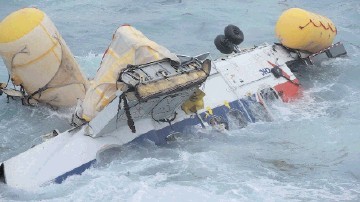
Earlier this week the Crown Office announced a Fatal Accident Inquiry into the 2013 helicopter crash off Sumburgh. Lisa Gregory, a solicitor who represented many of the passengers, gives her reaction:
The announcement that a Fatal Accident Inquiry is to be held into the helicopter crash which killed four people off Shetland in 2013 is to be welcomed but it also renews concern about the process of investigating fatal accidents in Scotland
Of course this will be a highly technical and challenging Inquiry and it is right that the investigation must be thorough but there is unanimous agreement that a delay of almost 6 years for confirmation that there is to be an Inquiry, with the date and venue still unknown, is indefensible.
Some of those involved will welcome the announcement that there is to be an Inquiry at last. Others may understandably feel that, after so much time has passed, they should be allowed privacy as they attempt to live with the consequences of the crash. For all of us, 2013 is a long time ago. There is a perception that the Inquiry become less relevant with every day that passes.
It is particularly concerning that this announcement comes after a period of reform of Fatal Accident Inquiries.
10 years ago, in 2009, the Scottish Government instigated a review of the rules on Fatal Accident Inquiries aiming to address unacceptable delays and overhaul the system. New legislation, the Inquiries into Fatal Accidents and Sudden Deaths etc. (Scotland) Act, was passed in 2016.
Sadly, it appears that Parliament’s stated intentions have not been realised. The major concern is the lack of resources available to the Crown Office and Procurator Fiscal Service to properly implement the new regime. In its budget for 2017/18, the Scottish Government announced that planned spending for COPFS would be reduced by £4million. The announcement now of the Inquiry into the Sumburgh crash gives us no comfort that all the talk of better processes, increased funding and greater efficiency in Fatal Accident Inquiries has translated into reality.
From a legal perspective, the passage of time means that evidence becomes less reliable. We know that memories of highly traumatic events can become too well embedded in the brain but we also know that memory is a reconstructive process. With the best will in the world, memories become distorted over time. If we are to deliver efficient Inquiries into events like the Sumburgh crash, the process has to be much quicker to ensure that the evidence is accurate and leads to the correct conclusions.
Politics are also at play. On 22nd December 2014, a bin lorry crashed in Glasgow with 6 fatalities. The Inquiry was held less than a year later in December 2015. How then can we account for the delay in the announcement of the Sumburgh FAI other than political pressure to deflect attention away from the industry?
The families of those who lost their lives, the survivors and everyone affected by this crash and safety in the industry as a whole deserve better.
Lisa Gregory is a Solicitor with Grant Smith Law Practice in Aberdeen. She has extensive experience in offshore health and safety. She represented many of the passengers involved in the 2013 helicopter crash off Sumburgh. She also instructed in the 2009 Super Puma helicopter crash off Peterhead as well as many other aviation crashes and offshore accidents.
Recommended for you

